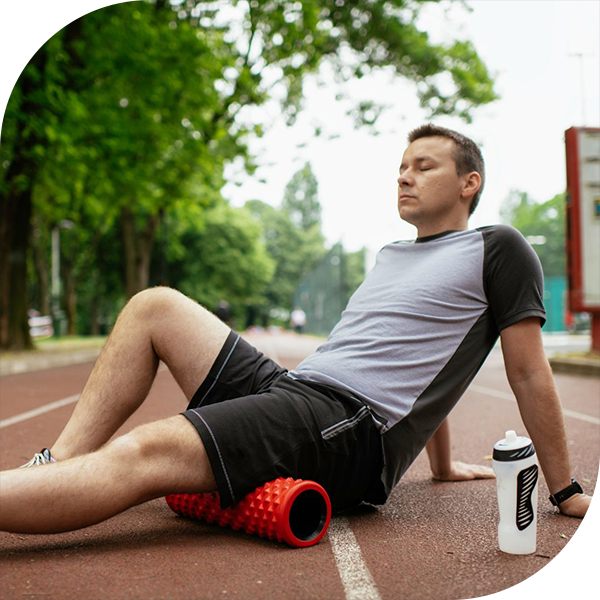Hormone Replacement for Athletes: Maximizing Performance Safely & Effectively
Hormone Replacement
As an athlete, you're always looking to improve your performance, whether on the field or in the gym. When it comes to hormone replacement therapy (HRT), you may wonder if it can help you achieve your goals. HRT is the practice of supplementing or replacing hormones in the body in order to treat various medical conditions, including low testosterone in men and menopausal symptoms in women. Contact one of our team members at Denver Sports Recovery for more detail!

Improved Muscle Mass & Strength
One of the main benefits of HRT for athletes is the potential to improve muscle mass and strength. Testosterone is a critical hormone in the development of muscle tissue, and low levels can lead to decreased muscle mass and strength. By supplementing testosterone through HRT, athletes may be able to see improvements in both of these areas. However, it's important to note that excessive use or abuse of HRT can lead to adverse side effects, such as liver damage, cardiovascular issues, and increased risk of certain cancers.
For male athletes experiencing low testosterone, HRT can help to restore muscle mass and improve strength, leading to better performance on the field or in the gym. For female athletes, HRT may also help to increase muscle mass and improve strength, particularly during and after menopause, when decreases in estrogen levels can lead to significant declines in muscle tissue.

Enhanced Endurance & Energy
Another potential benefit of HRT for athletes is the improvement in endurance and energy. Hormones such as testosterone and human growth hormone (HGH) can help to improve energy levels, reduce recovery time, and increase endurance during training and competitions.
By supplementing hormones such as testosterone or HGH through HRT, athletes can potentially see improvements in energy levels, recovery time, and overall endurance. This can translate to better performance on the field or in the gym.

Reduced Injury Risk
Athletes with hormone imbalances or deficiencies may be at higher risk of injuries during training and competition. HRT can help to reduce this risk by supporting healthy growth and development of muscle tissue and bones, as well as improved immune function.
By supporting healthy levels of hormones through HRT, athletes can help to reduce their risk of injuries during training and competition. This is particularly true for athletes with naturally low levels of hormones such as testosterone or HGH. However, it's imperative to work with qualified healthcare such as Denver Sports Recovery professionals to ensure that HRT is administered safely and in appropriate levels to avoid negative side effects.
Personalized Treatment Plans
Athletes considering HRT must work with qualified healthcare professionals to develop personalized treatment plans that account for their individual needs and goals. Athletes must also be willing to make a commitment to lifestyle changes that support overall health and wellness, such as maintaining a balanced diet, getting adequate rest and exercise, and avoiding substance abuse.
HRT should always be administered under the guidance of a qualified healthcare professional who can help athletes develop personalized treatment plans that address their individual needs and goals. This includes tailoring hormone levels to specific sports or fitness activities and considering lifestyle changes that support overall health and wellness. It's critical to approach HRT with care and caution to avoid adverse side effects and to always prioritize overall health and wellness.
HRT can provide potential benefits for athletes looking to improve their performance, build muscle mass, and reduce injury risk. Athletes must be willing to make a commitment to lifestyle changes that support overall health and wellness and avoid excessive use or abuse of HRT. With personalized treatment plans from Denver Sports Recovery and healthy lifestyle changes, athletes can safely and effectively incorporate HRT into their training and competition strategies.
